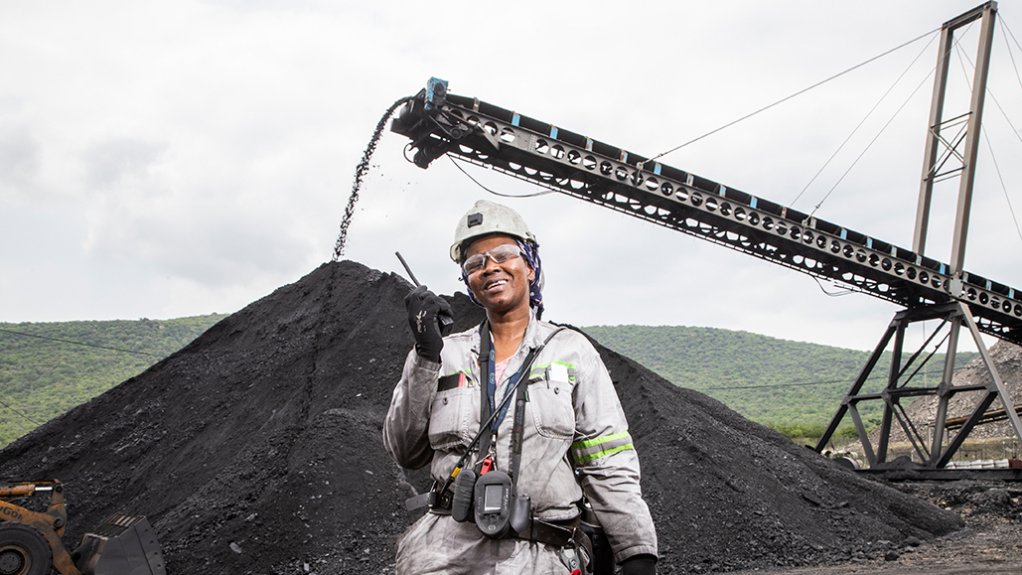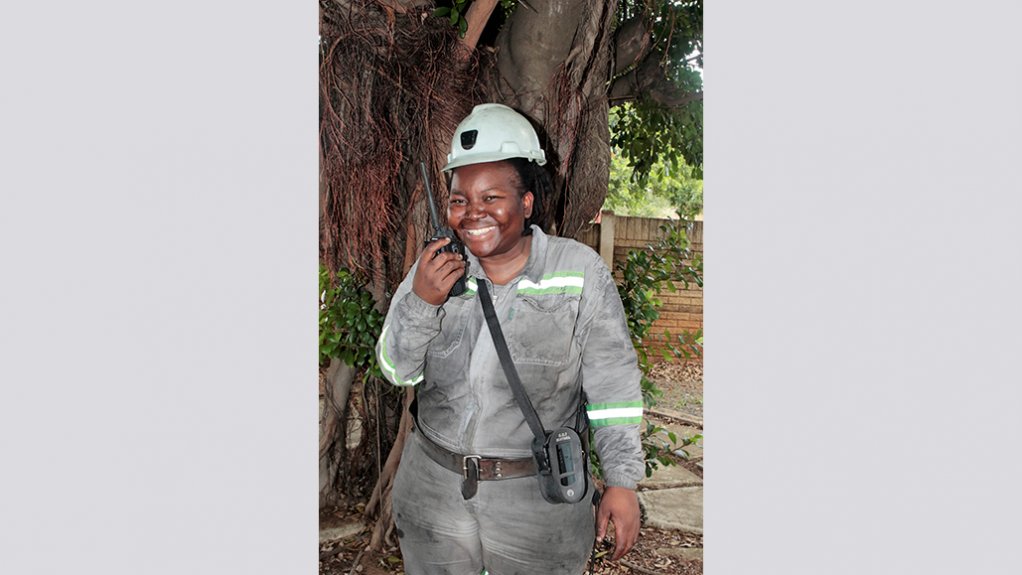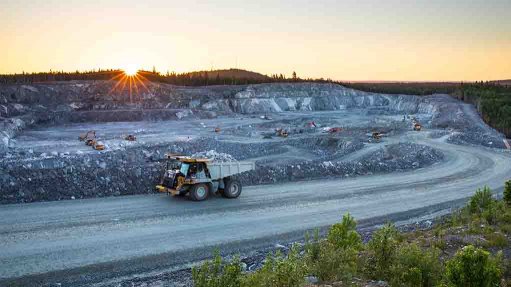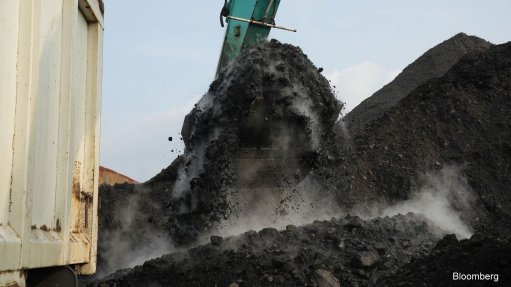Colliery advances training and development



PLUGGING THE SKILLS GAP ZAC’s interventions have helped to produce 35 graduates over the past two years, as Buyisile Celiwe Sithole was appointed as shaft boss for the Ngwabe shaft last year
PRIORITISING TRANSFORMATION The appointment of Zinhle Nkabinde as the first woman shaft boss at the Outcrop shaft in 2022 represented a significant milestone for ZAC
Menar subsidiary Zululand Anthracite Colliery (ZAC), in KwaZulu-Natal, has, in recent years, developed a track record of providing skills and career development opportunities for communities surrounding its mines.
“Our skills development programmes – which include engineering, human resources, procurement and mining – give candidates hands-on experience to equip them for the future.A key focus of our programmes is upholding transformation by creating more opportunities for previously marginalised groups, including women and youth,” states ZAC sustainable development manager Khumbulani Masuku.
To support skills development in the sector, ZAC provides bursary, learnership and internship opportunities to local youth in the host communities.
Training is also available to staff to enable individuals to develop in their professions, he adds.
ZAC has allocated a budget of R23-million over five years towards skills and training, with portable skills included.
“The complete bursaries and learnerships we offer, in terms of support, include full tuition, accommodation, transport, a monthly stipend and other learning materials. ZAC now also offers a two-year internship programme, unlike previous years, when the programme only ran for 12 months.”
The bursaries are offered in, for example, environmental studies, mechanical engineering, electrical engineering and accounting.
ZAC’s interventions have helped to produce 35 graduates over the past two years.
Masuku stresses that the mining sector still has work to do in terms of achieving transformation, particularly regarding support for women.
According to industry body the Minerals Council South Africa, women account for only 12% of the industry’s workforce.
“We are contributing towards transformation by opening up bursary, internship and learnership opportunities to women who are keen to join the industry. We hope to debunk perceptions that careers in mining are reserved for men. We are proud of the talented women in our team and believe that their presence will attract more women to pursue careers in mining,” he adds.
Menar has recently appointed two women as shaft supervisors at ZAC – an important development that shows the possibilities of upward progression for hardworking individuals, regardless of gender.
The appointment of Zinhle Nkabinde as the first woman shaft boss at the Outcrop shaft in 2022 represented a significant milestone for ZAC, states Masuku.
This was followed by the appointment of Buyisile Celiwe Sithole as shaft boss for the Ngwabe shaft last year.
ZAC plans to continue providing training and development opportunities, and aspires to prepare more women to take up leadership positions.
“Our short-term focus is to ensure that the current cohort of learners and interns complete their training successfully. In the future, we hope to increase capacity so that we can offer more skills opportunities to local communities.”
Masuku stresses the importance of the local mining sector’s prioritising skills development, as the success of the industry relies on the strength of its workforce.
“Mining education and training in the country is a shared responsibility between the State and private sector, meaning that these stakeholders must place more focus on increasing the availability of opportunities, especially in rural areas.
“South Africa currently lacks sufficient skills in the sector, which is a reflection on the dearth of education and training opportunities.”
Masuku emphasises that the demand for education and training in South African mining is high, and that the “temporary pause” in economic and educational activities, owing to Covid-19 lockdowns, exacerbated the country’s existing skills gap.
Further, the change in skills requirements – influenced by rapid technological advance-ments – is another reason why companies in the sector must provide continuous training.
“Other factors that influence the current skills gap include low mathematics and science literacy levels that may present difficulties when trying to onboard candidates for bursary opportunities in fields such as engineering. The lack of career guidance may also stand in the way of youth and women from marginalised communities in terms of accessing information about skills opportunities in mining,” he concludes.
Comments
Press Office
Announcements
What's On
Subscribe to improve your user experience...
Option 1 (equivalent of R125 a month):
Receive a weekly copy of Creamer Media's Engineering News & Mining Weekly magazine
(print copy for those in South Africa and e-magazine for those outside of South Africa)
Receive daily email newsletters
Access to full search results
Access archive of magazine back copies
Access to Projects in Progress
Access to ONE Research Report of your choice in PDF format
Option 2 (equivalent of R375 a month):
All benefits from Option 1
PLUS
Access to Creamer Media's Research Channel Africa for ALL Research Reports, in PDF format, on various industrial and mining sectors
including Electricity; Water; Energy Transition; Hydrogen; Roads, Rail and Ports; Coal; Gold; Platinum; Battery Metals; etc.
Already a subscriber?
Forgotten your password?
Receive weekly copy of Creamer Media's Engineering News & Mining Weekly magazine (print copy for those in South Africa and e-magazine for those outside of South Africa)
➕
Recieve daily email newsletters
➕
Access to full search results
➕
Access archive of magazine back copies
➕
Access to Projects in Progress
➕
Access to ONE Research Report of your choice in PDF format
RESEARCH CHANNEL AFRICA
R4500 (equivalent of R375 a month)
SUBSCRIBEAll benefits from Option 1
➕
Access to Creamer Media's Research Channel Africa for ALL Research Reports on various industrial and mining sectors, in PDF format, including on:
Electricity
➕
Water
➕
Energy Transition
➕
Hydrogen
➕
Roads, Rail and Ports
➕
Coal
➕
Gold
➕
Platinum
➕
Battery Metals
➕
etc.
Receive all benefits from Option 1 or Option 2 delivered to numerous people at your company
➕
Multiple User names and Passwords for simultaneous log-ins
➕
Intranet integration access to all in your organisation




















